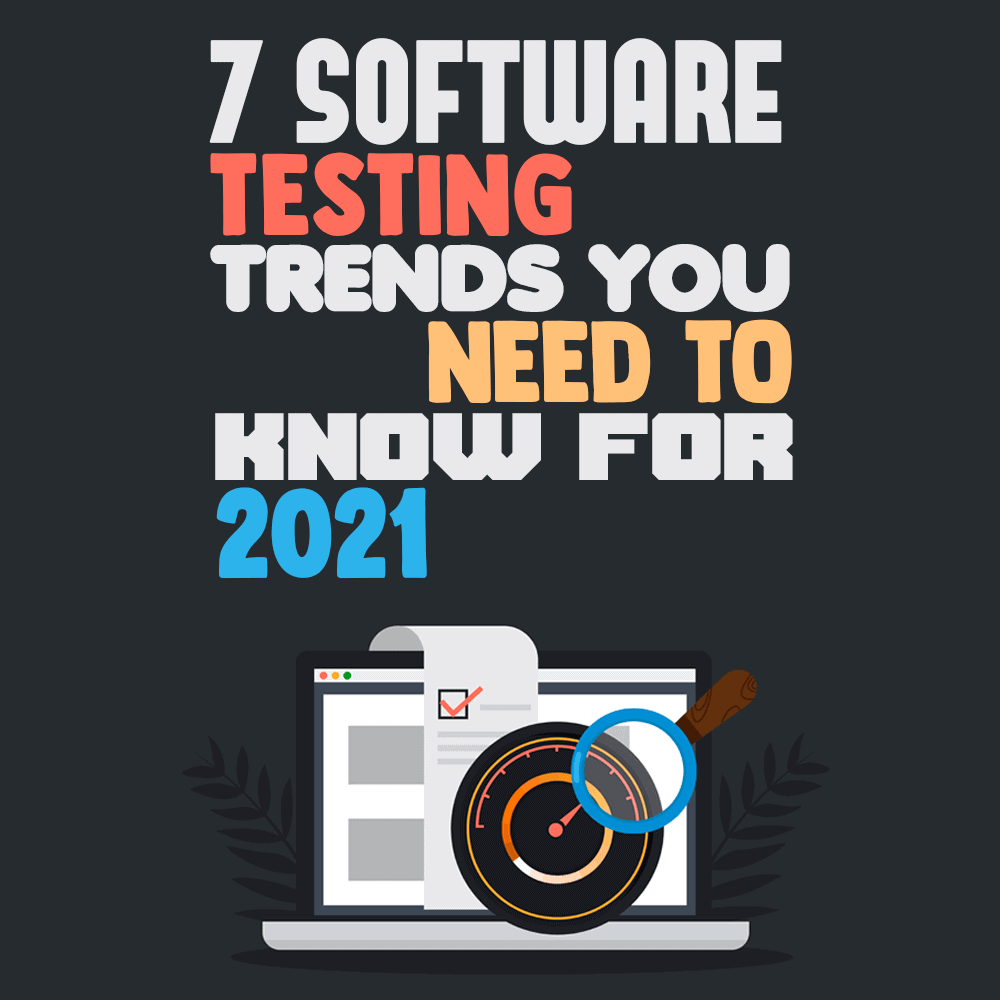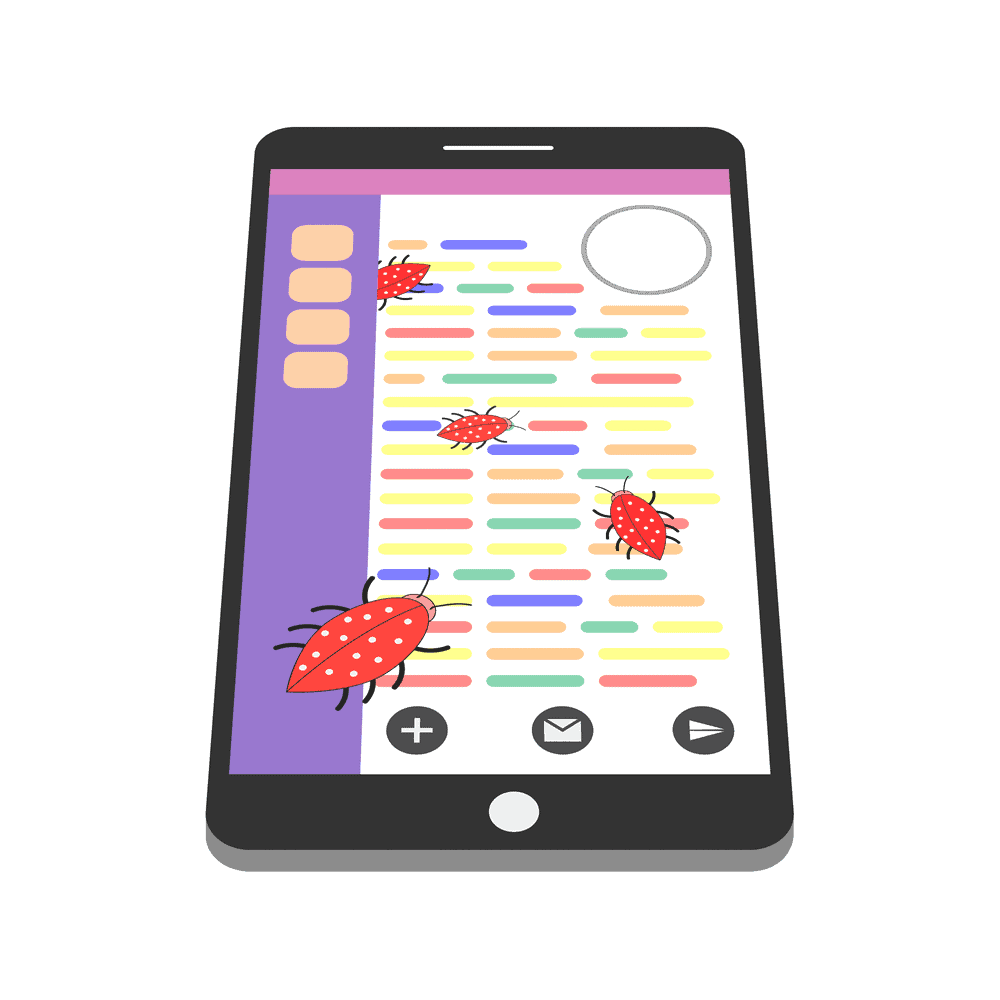
Today, organizations realize why quality control is important. Quality control is not just about identifying bugs and failures; it is a deep technical methodology that involves product planning, behavioral forecasts, profit and vulnerability analysis, etc.
Many enterprises are shifting from manual testing to automated testing to lower their manual testing efforts and save their resources. But what is the future of the software testing industry? Will it grow in the way it has in recent decades, or will it have high inflation?
Well, to take the software testing game to a new level, check out these seven exciting software testing trends that I expect will be big in 2021.
1. Artificial Intelligence for Test Automation
The adoption of artificial intelligence (AI) is expected to rise in just about every innovative technology area due to the rising number of applications we use in the digital world.
Software development teams can integrate artificial intelligence and machine learning (ML) to refine their automation techniques and keep track of regular releases—monitoring and analysis.
For instance, the Quality Assurance (QA) team may use AI algorithms to define and allocate the scope of further test automation. AI and ML will transform the way we utilize test data to improve the recognition of bug algorithms. Numerous manual testing activities are likely to be picked up by automation to make the distribution of QA assets more productive.
AI tools can help QA teams build test suites from zero with no manual intervention, and they will help to upgrade current test suites, eliminating obsolete test cases.
Sophisticated innovative technologies in software testing and data analytics can also help QA teams develop and select appropriate keywords for the requirement traceability matrix.
AI tools will also help in expanding test coverage and in doing predictive analytics— forecasting core criteria and requirements for end-user behavior and exploring the application fields to work on.
2. Codeless Automation Testing
Test automation is rising with the rapid growth of the web development industry. Manual testing isn’t enough to satisfy existing requirements for software development. Leading tech enterprises are implementing a new trend in codeless test automation to improve their tests’ usability.
By leveraging codeless automation tools, testers can develop test case scenarios without having any coding experience and reduce the time spent in redundant test cases. Codeless automation tools will be one of the software testing approaches you need to aim for in 2021.
Since these test cases are developed with no code, they are clear and readable to people who don’t have any prior coding knowledge. Codeless test cases can be tested effortlessly by even nontechnical members of the project.
The test cases can be developed quickly, as they do not require any complex coding. Overall, automated testing enhances the entire automation process.
The codeless automation process is cost-effective. It doesn’t require you to learn to code, and the QA engineers don’t need to hire any coding professionals, thereby saving cost and resources.
3. Increasing Demand for IoT Testing
The Internet of Things (IoT) is on the rise with new technological advancements. IoT testing utilizes sophisticated technologies as the software is integrated into IoT tools. It is important to ensure IoT devices are protected by evaluating risk, testing for hardware issues, and testing data integrity and access management.
A successful IoT testing approach will contribute to the smooth and efficient functioning of products. Only a few organizations are adopting the Internet of Things testing strategies. However, this development is expected to rise in the coming years.
4. Incorporation of Agile and DevOps
The concepts of DevOps and Agile have evolved as the most favored by a number of organizations. These methodologies are perfectly built to promote rapid deployment and good coordination between developers and QA engineers.
Agile is a continuous process of development and testing, while DevOps is a set of practices for optimizing and automating the overall software development life cycle (SDLC).
Agile and DevOps promote high-quality products at an incredible pace, boost go-to-market delivery, increase productivity and performance, find bugs at the initial stages of the SDLC, and contribute to the development of quality products.
5. QAOps
Software development processes have evolved over time, and the task of QA or software tester is not confined to testing only. Testers are engaged in every aspect of the development of software.
QAOps is a technique that puts together engineers, testers, and functional teams. QAOps plays an integral role in ensuring that products are of higher quality when quicker delivery is required.
DevOps is integrated with continuous testing to ensure that software enhancements are quickly passed to the CI/CD pipeline’s development process.
6. Robotic Process Automation
Robotic Process Automation (RPA) tools have a considerable role in quality control and software testing domains, as companies can create a robust testing infrastructure.
RPA-based tools have become popular, spanning various aspects in the QA and software testing fields.
RPA greatly reduces the time-lapse of software testing and cuts down costs instantly. As a result, companies can consider conducting more detailed test ecosystems to allow organizations to reach and sustain high stability. RPA is inevitably going to be something you need to follow in 2021.
7. Mobile First Testing

Cross browser testing platforms such as LambdaTest offer manual and automated testing over a range of devices, browsers, and browser versions.
For manual testing, whether it is Android or iPhone, you can test your website over 2000+ real browser and browser versions.
For mobile automation testing, you can leverage LambdaTest Appium Web Automation Grid and generate the desired capabilities from LambdaTest Desired Capabilities Generator.
You can also leverage a dev-friendly tool called LT Browser, offered by LambdaTest, that will help you test the responsiveness of your websites and web applications across 45+ pre-installed devices. Whether you want to test an iPhone, iPad, Samsung, or MacBook, you will get all the resolutions in the LT Browser.
The 2021 Software Testing Trends You Need To Know
Knowing the recent trends in software testing is highly important for both businesses and enterprises.
Whether you are a testing company or a QA specialist, you need to keep up with these new developments in software testing to stay ahead in the long run.
